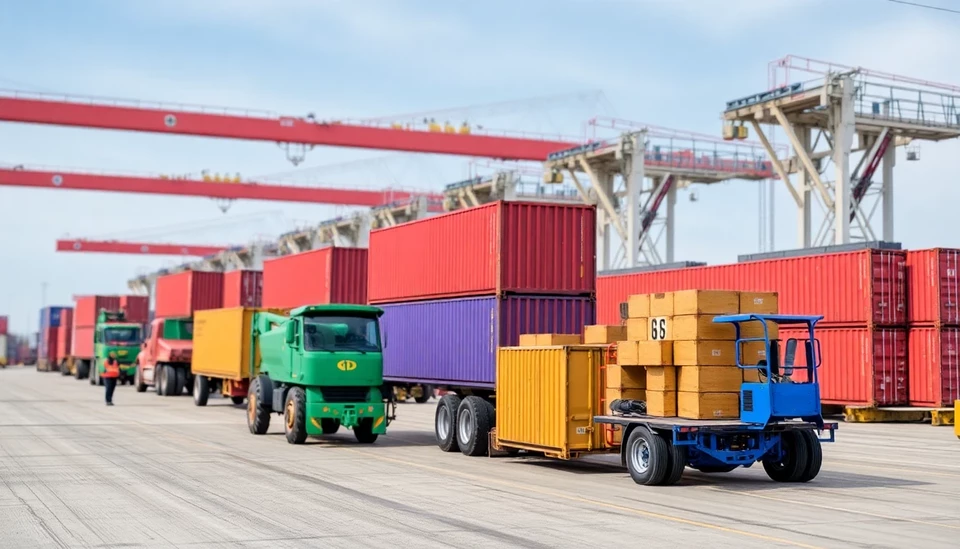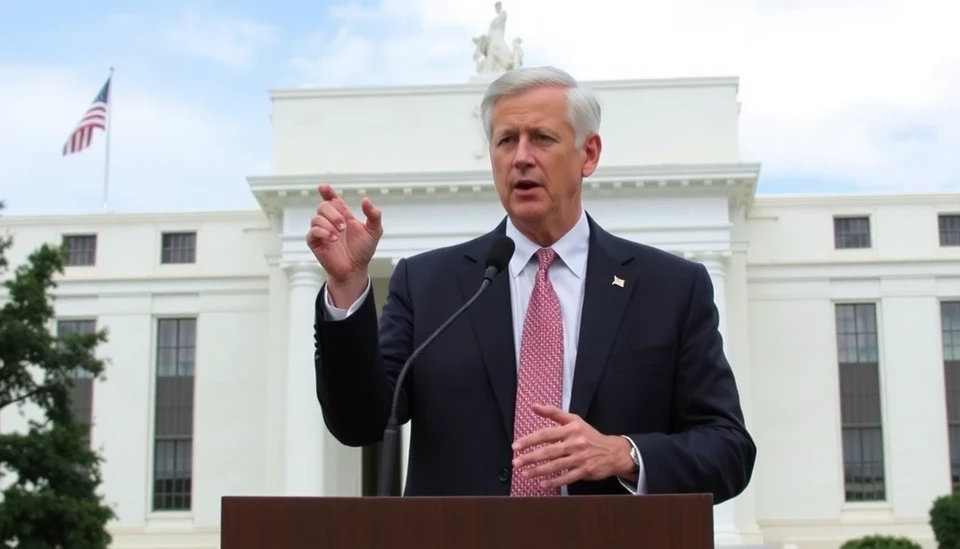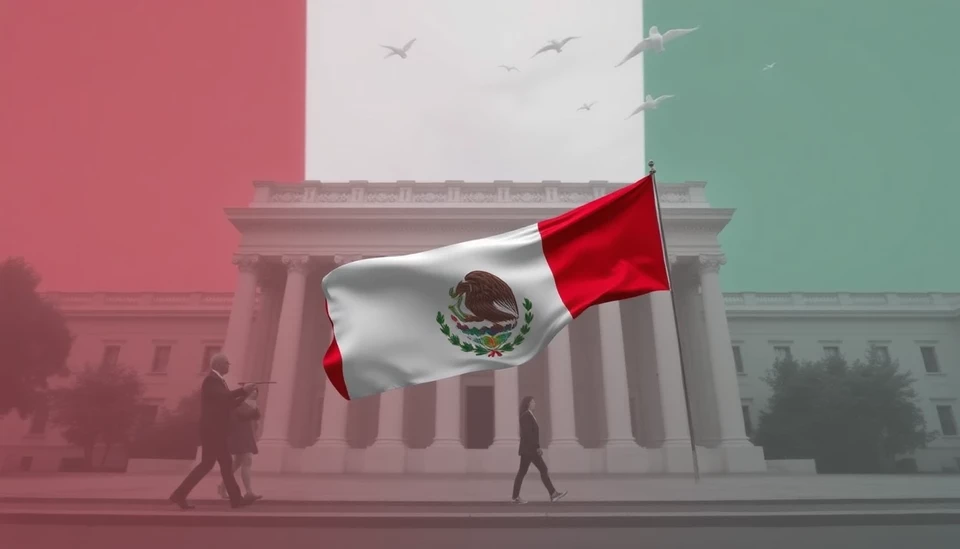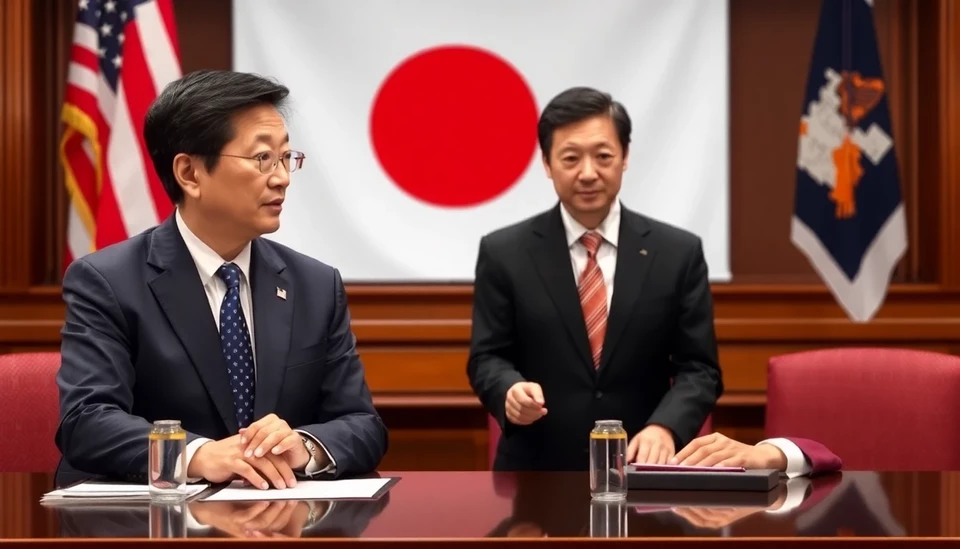
Federal Reserve’s Christopher Waller Signals Possible Interest Rate Cuts Amid Job Concerns
In a recent statement, Federal Reserve Governor Christopher Waller indicated that he would support a reduction in interest rates if factors such as tariffs lead to significant job losses. This announcement comes against the backdrop of ongoing economic challenges, including the strain of higher tariffs on American businesses and consumers.
Continue reading
U.S. Capital Goods Orders Experience Modest Growth Amid Tariff Concerns
In a climate marked by uncertainty surrounding international trade policies, the latest figures have revealed that orders for U.S. capital goods saw only a slight increase. This cautious uptick reflects businesses' apprehension regarding potential tariffs and their subsequent impact on future investments. According to the report released by the Commerce Department, new orders for non-defense capital goods, excluding aircraft, rose by just 0.3% in March, trailing behind economists' expectations for a growth of 0.5%.
Continue reading
Spain’s Cuerpo Upholds Ties with China Amid Tensions with the U.S.
In a striking move that underscores Spain's diplomatic balancing act, the body of Spain's foreign relations, known as Cuerpo, has publicly reaffirmed its commitment to maintaining a strong relationship with China. This decision comes at a time when the United States and China are grappling with escalating tensions over a variety of geopolitical issues.
Continue reading
Federal Reserve's Hammack Signals Potential Rate Action in June
In a notable address, Federal Reserve Governor Michelle Hammack emphasized that clear economic data could drive the central bank to consider an adjustment to interest rates as early as June. The remarks come amid ongoing discussions about the Fed's monetary policy strategy and its responsiveness to changing economic indicators.
Continue reading
Surprising Spike in Mexico's Inflation as Banxico Pursues Rate Cuts
In an unexpected twist, inflation in Mexico has surged, defying predictions from economists and analysts, coinciding with recent interest rate cuts by the Bank of Mexico (Banxico). The latest data highlights an uptick in inflation, prompting discussions around economic stability and the potential impacts of ongoing monetary policy adjustments.
Continue reading
South Africa's Central Bank Optimistic as Lower Oil Prices Ease Inflation Concerns
In a forward-looking statement, the Governor of the South African Reserve Bank (SARB), Lesetja Kganyago, has highlighted the impact of lower oil prices on the country’s inflation rate. Speaking at a recent monetary policy briefing, Kganyago noted that easing global oil prices are expected to provide some relief to South Africa’s consumer price index (CPI), which has been under pressure for an extended period.
Continue reading
Who Suffers from Tariffs? Unpacking the Costs in the Supply Chain
As global supply chains continue to face disruptions and tariffs remain a central issue in trade policies, businesses and consumers are grappling with the ultimate question: Who ends up footing the bill when tariffs are imposed? The ongoing debate highlights the economic dynamics at play and the varied impacts across different sectors and regions.
Continue reading
European Central Bank’s Flexibility Crucial for Economic Recovery, Says Rehn
In a recent statement, European Central Bank (ECB) policymaker Olli Rehn emphasized the importance of agility within the bank's monetary policy framework. Addressing concerns about the Eurozone's economic health, Rehn indicated that the ECB should remain open to the possibility of more substantial interest rate cuts if it becomes necessary to stimulate growth.
Continue reading
Japan's Kato Advocates for Consistency in US Currency Discussions by Referencing Existing Agreements
In a significant development within international economic dialogue, Japan's Deputy Prime Minister, Kato, emphasized the importance of grounding discussions with the United States on existing foreign exchange agreements. This move comes as global markets remain sensitive to currency fluctuations and their implications for trade relations.
Continue reading
U.S. Customs Duties Surge to Record Levels Amid Continued Implementation of Trump Tariffs
As the Biden administration grapples with the ongoing economic implications of previous policies, U.S. customs duties have reached unprecedented levels, primarily driven by the tariffs instituted during former President Donald Trump’s time in office. Recent data reveals that tariffs on imports are significantly contributing to federal revenue, raising critical questions about their long-term impact on both consumers and businesses.
Continue reading